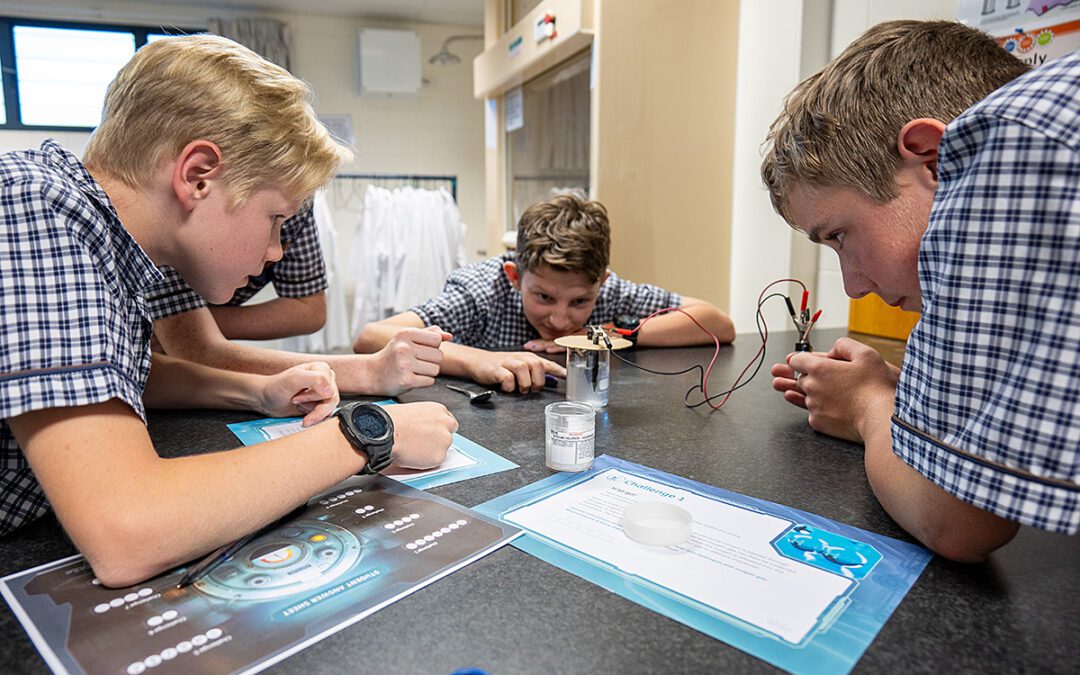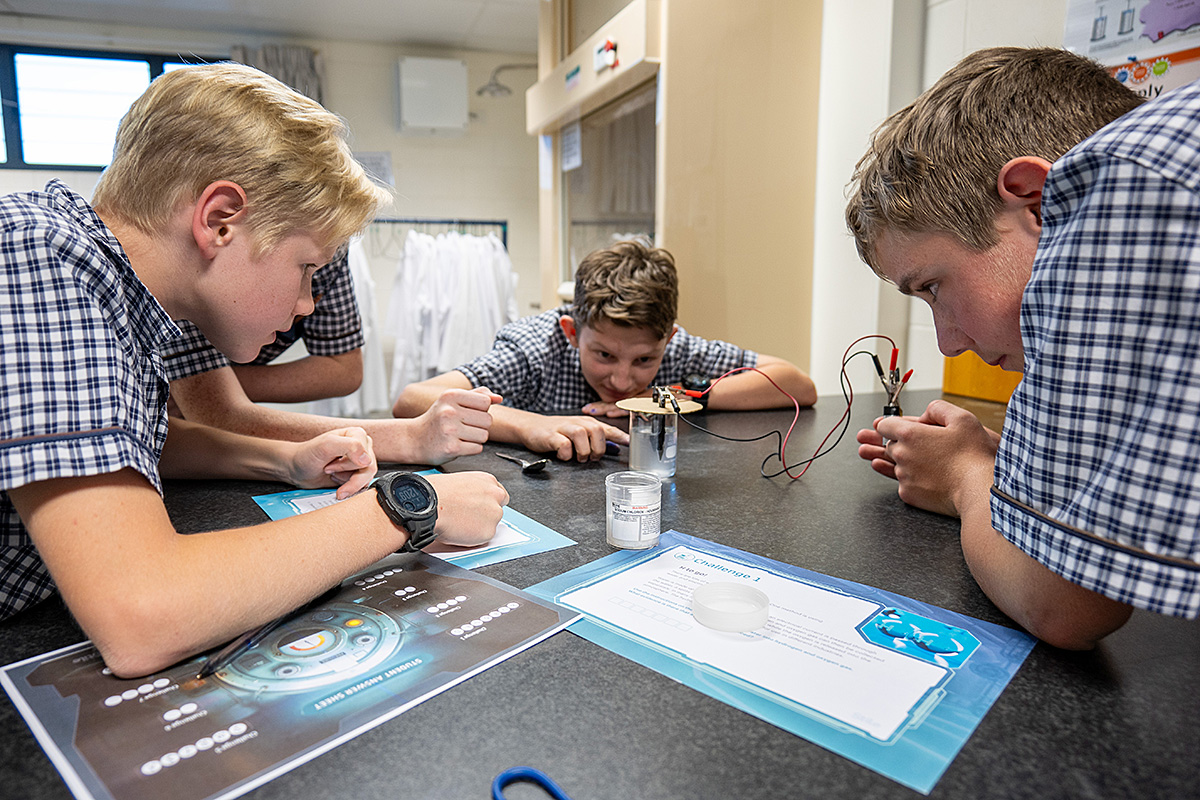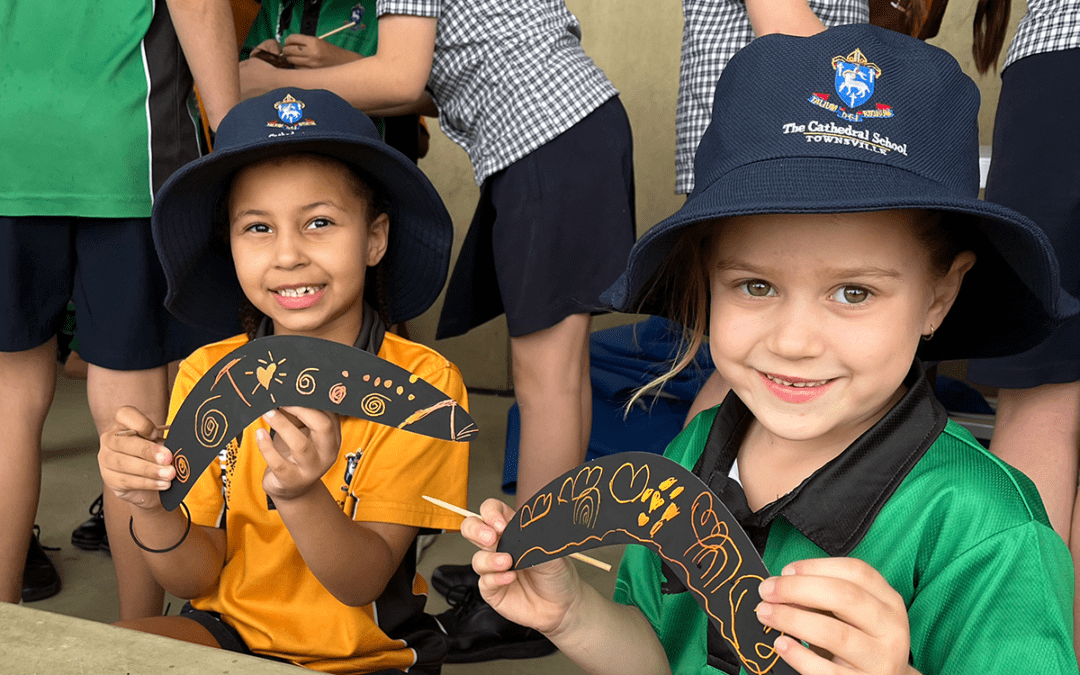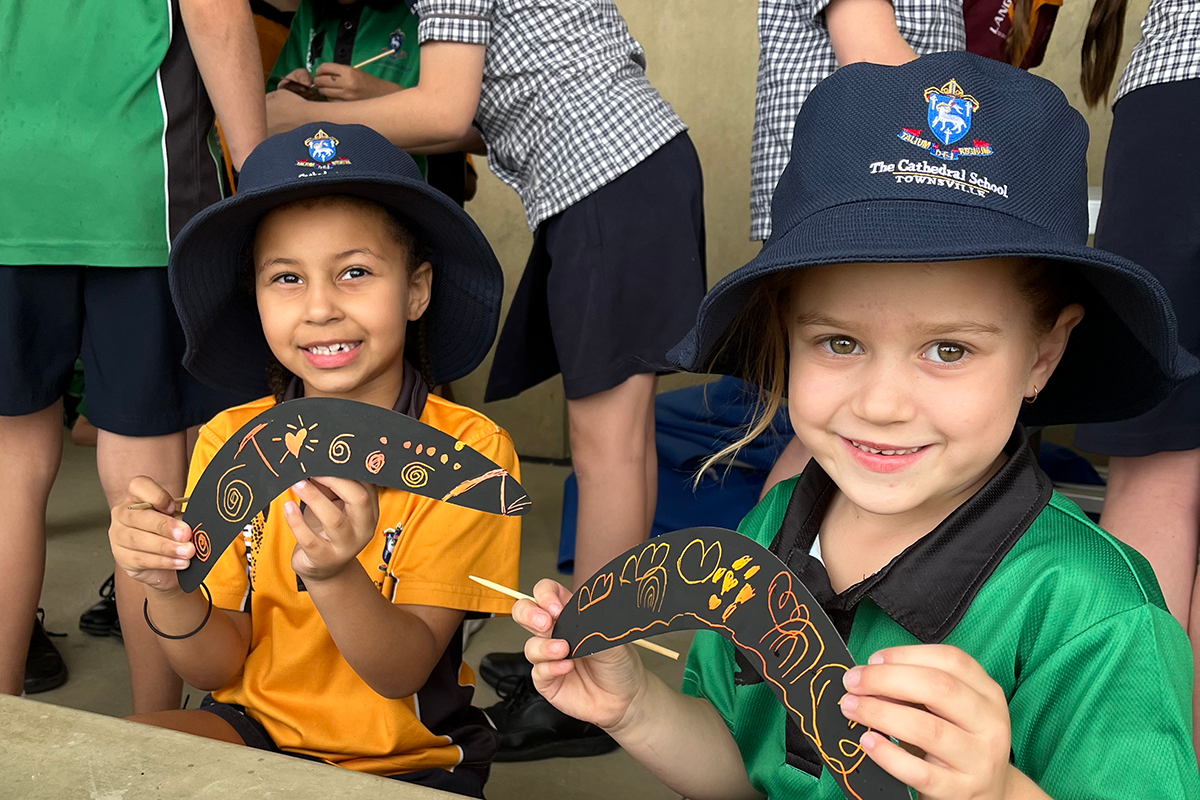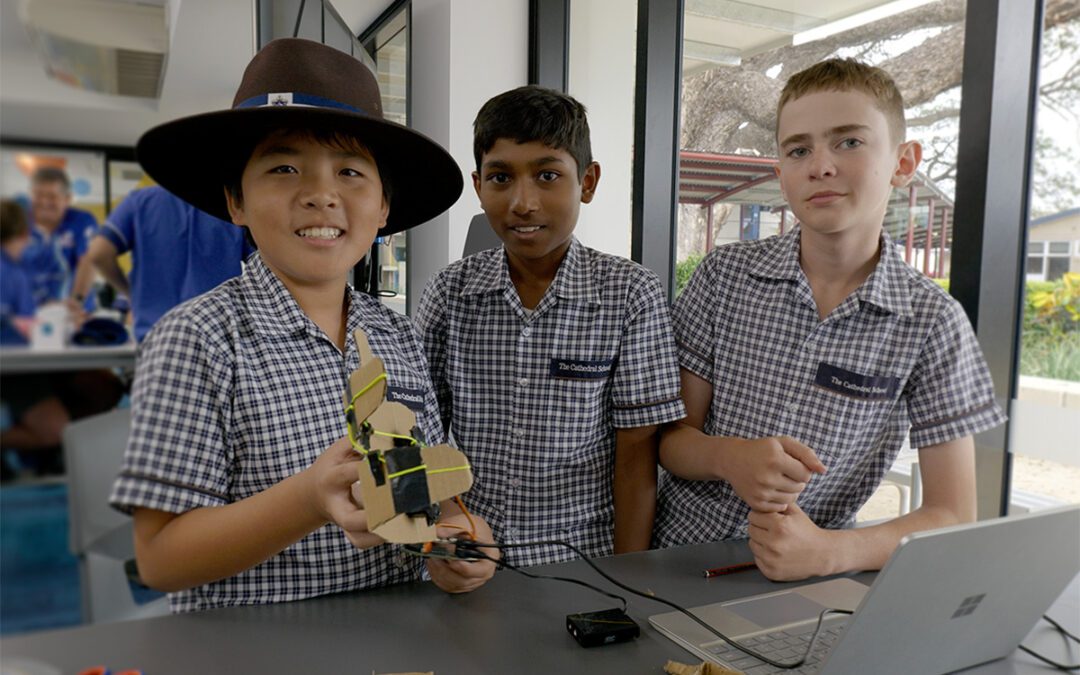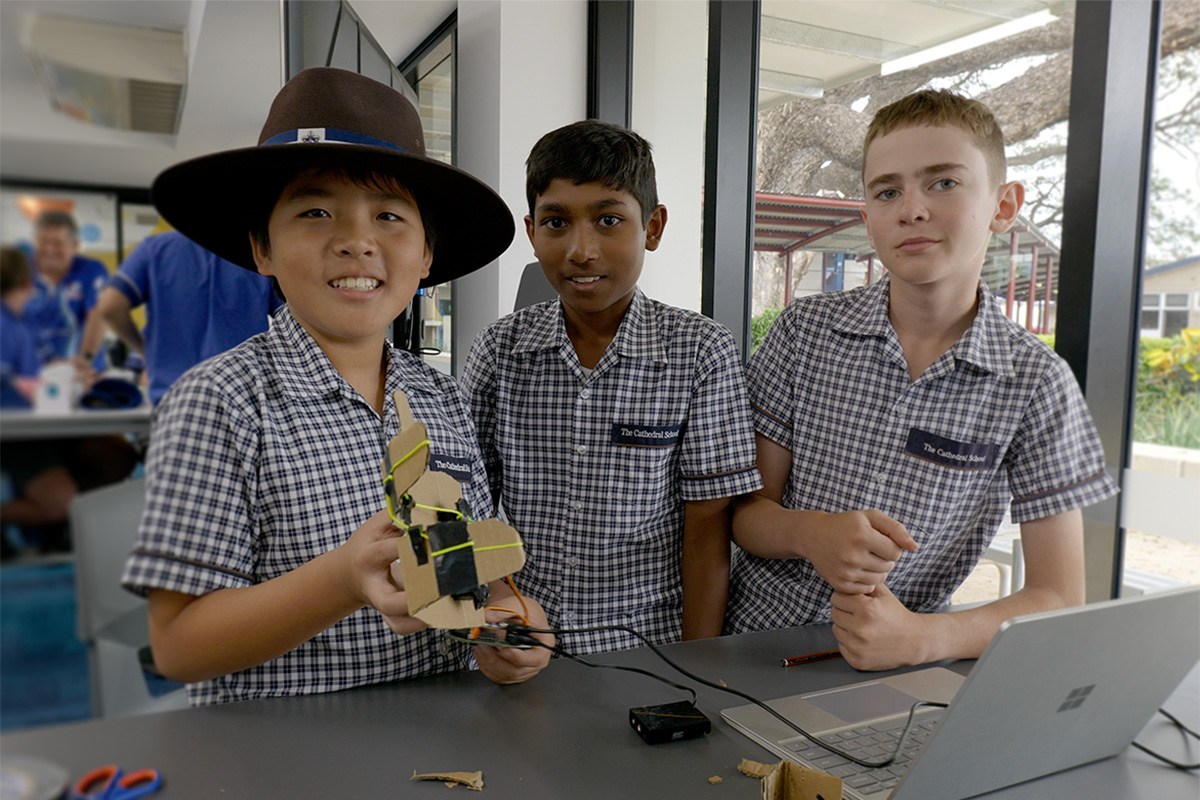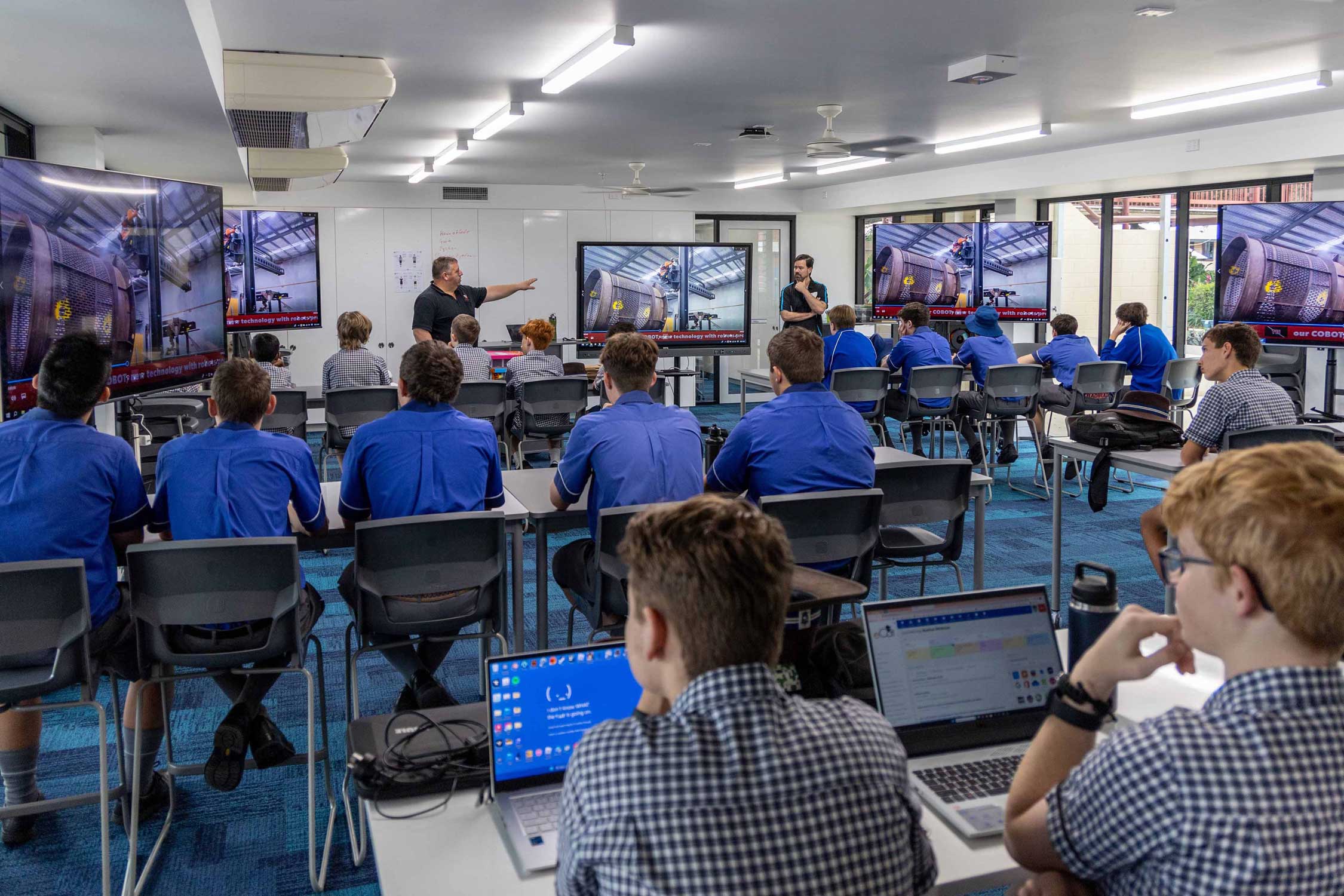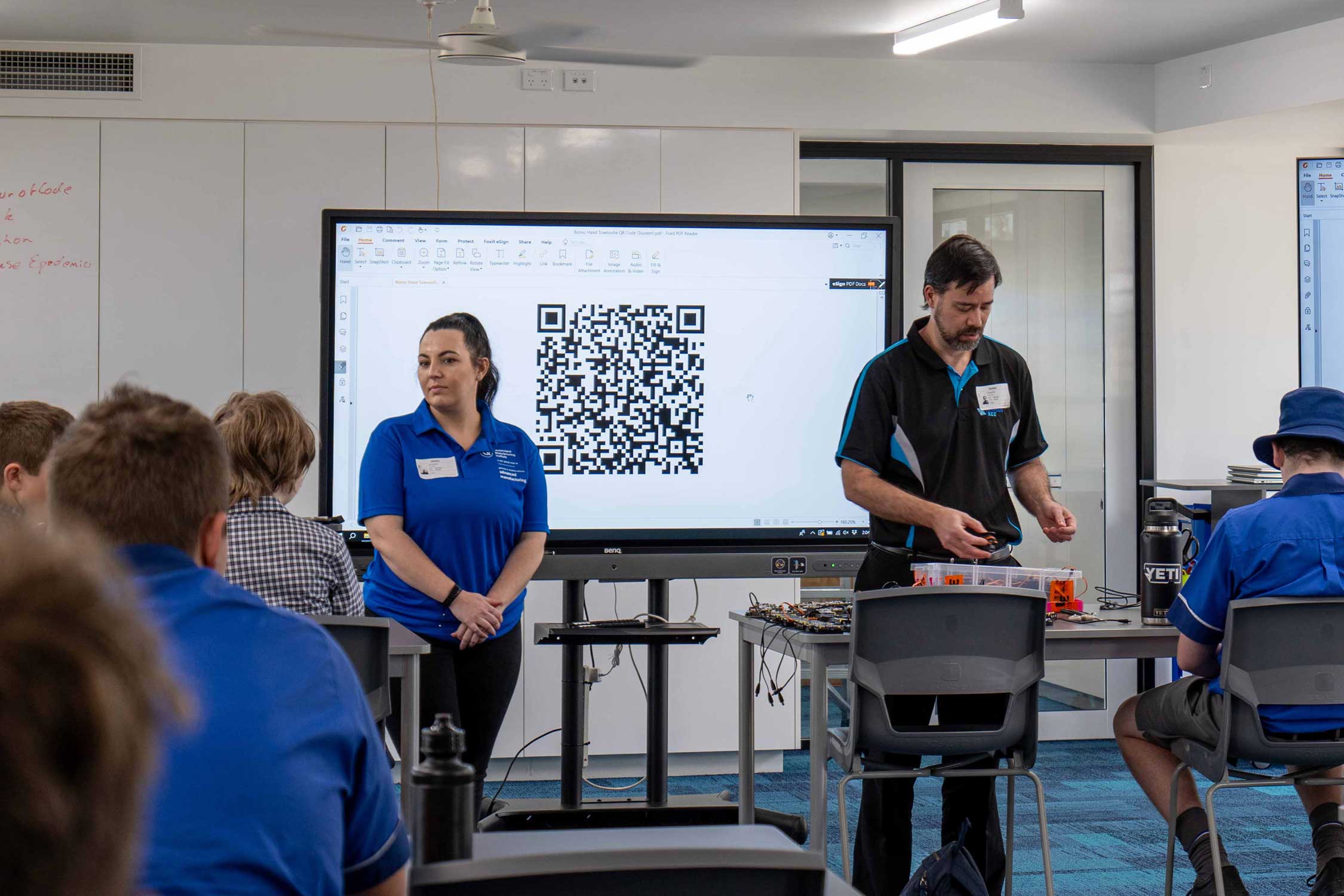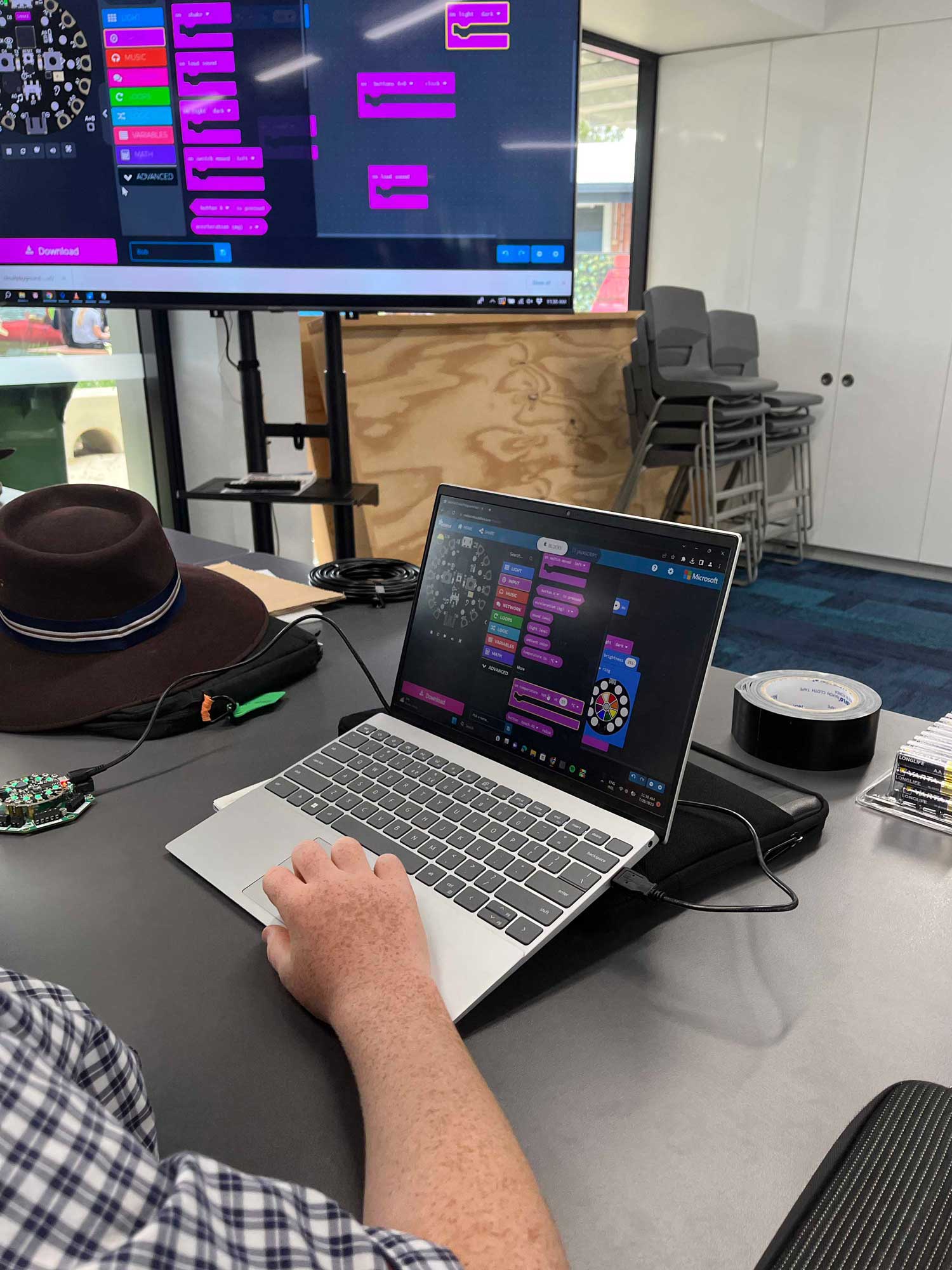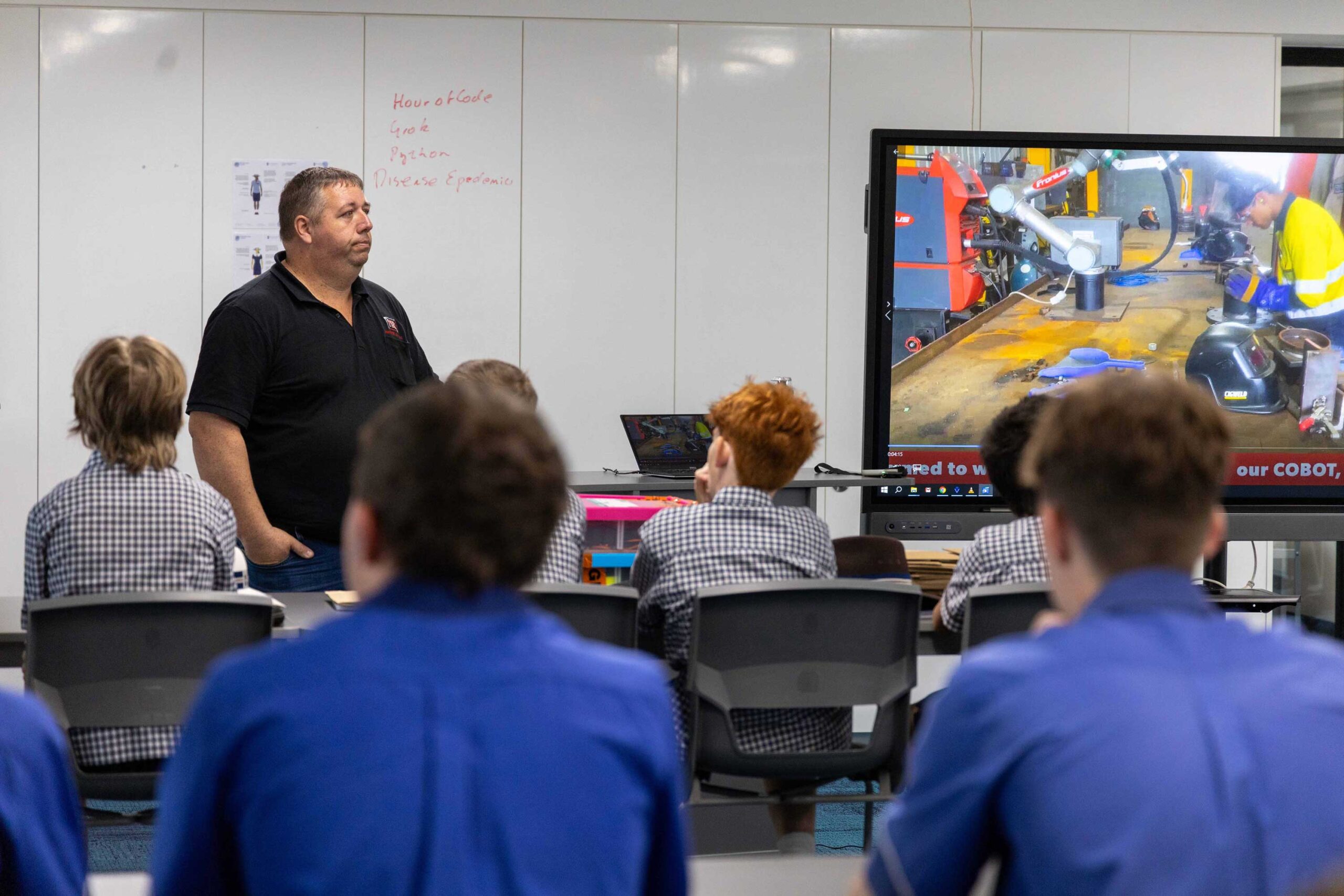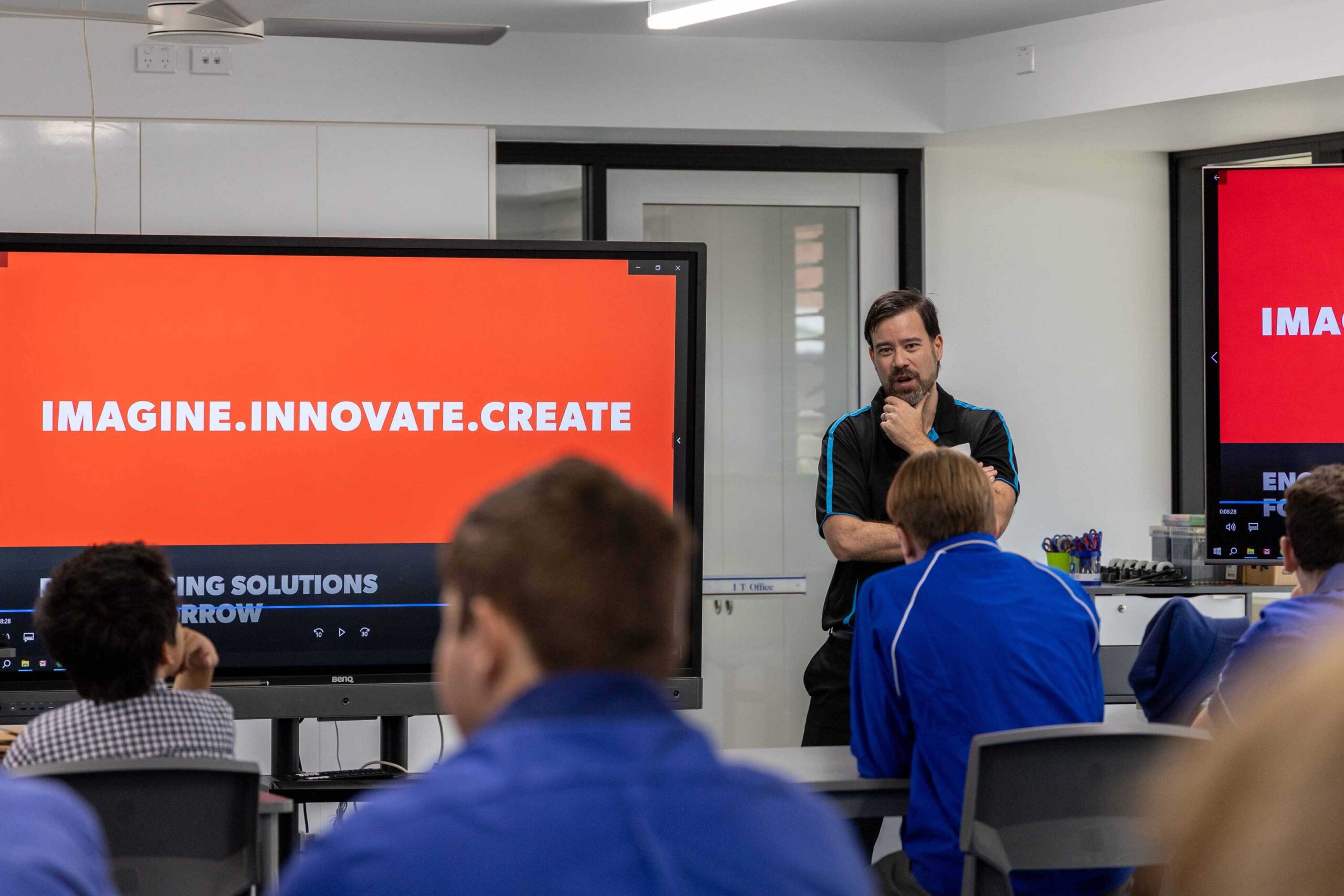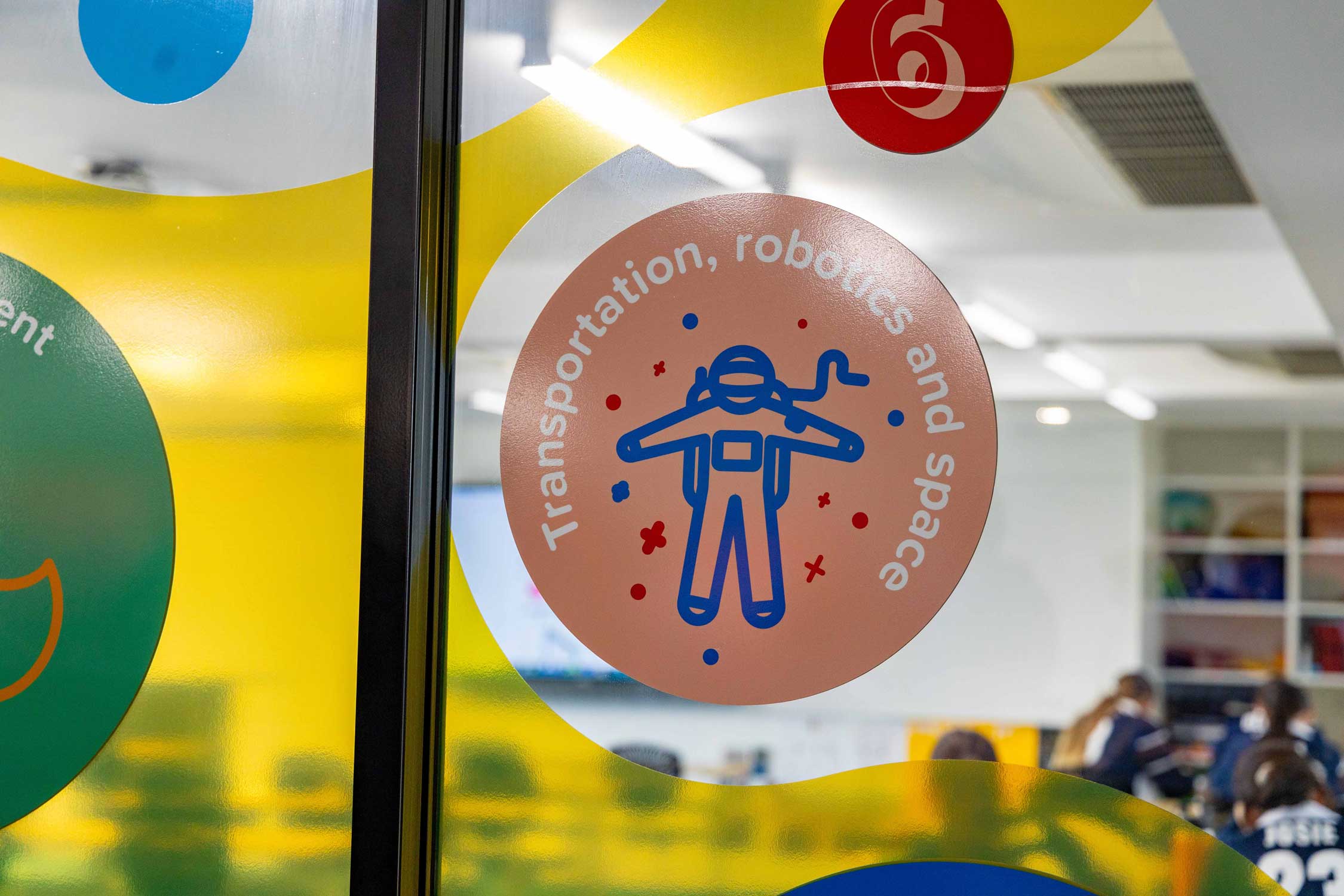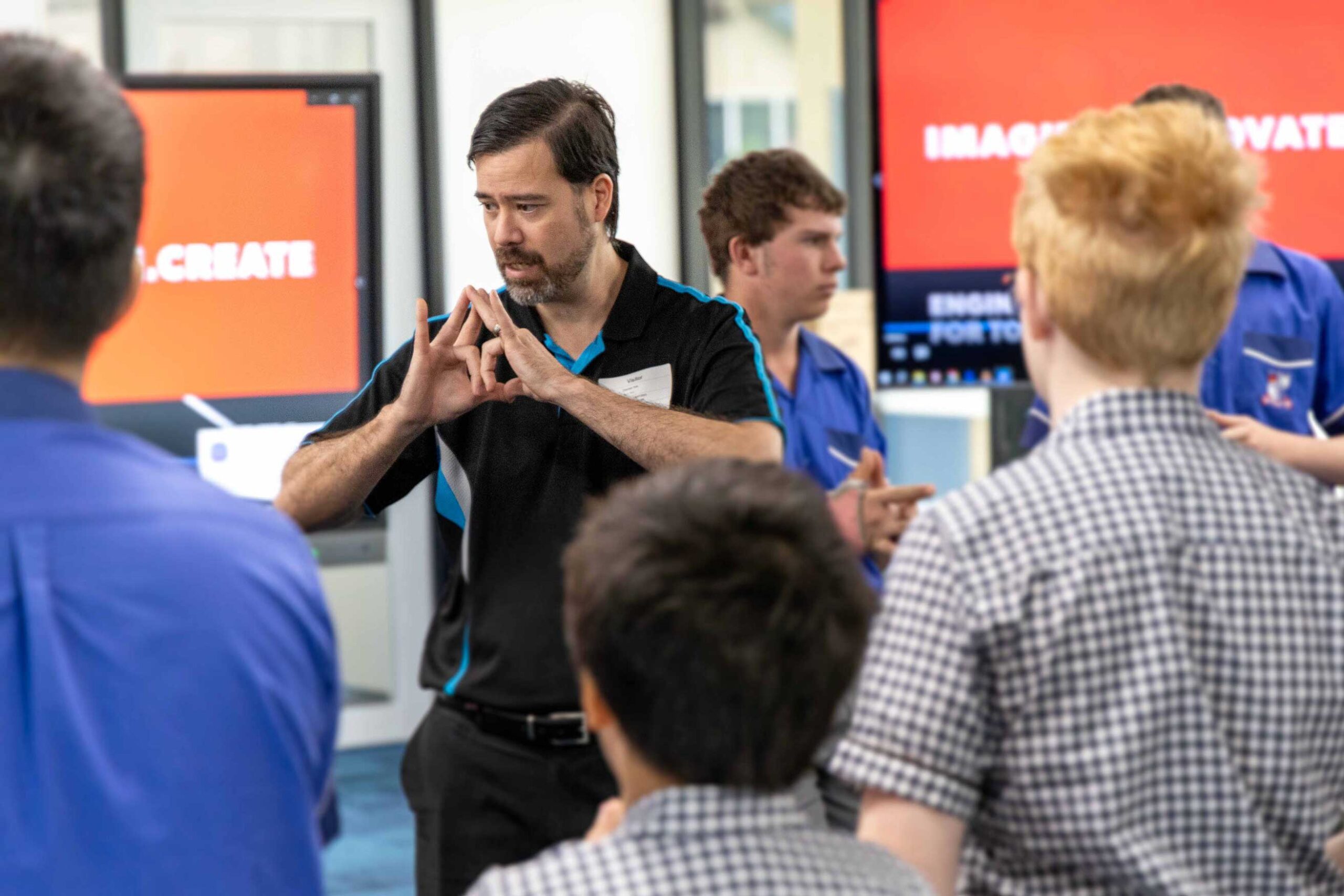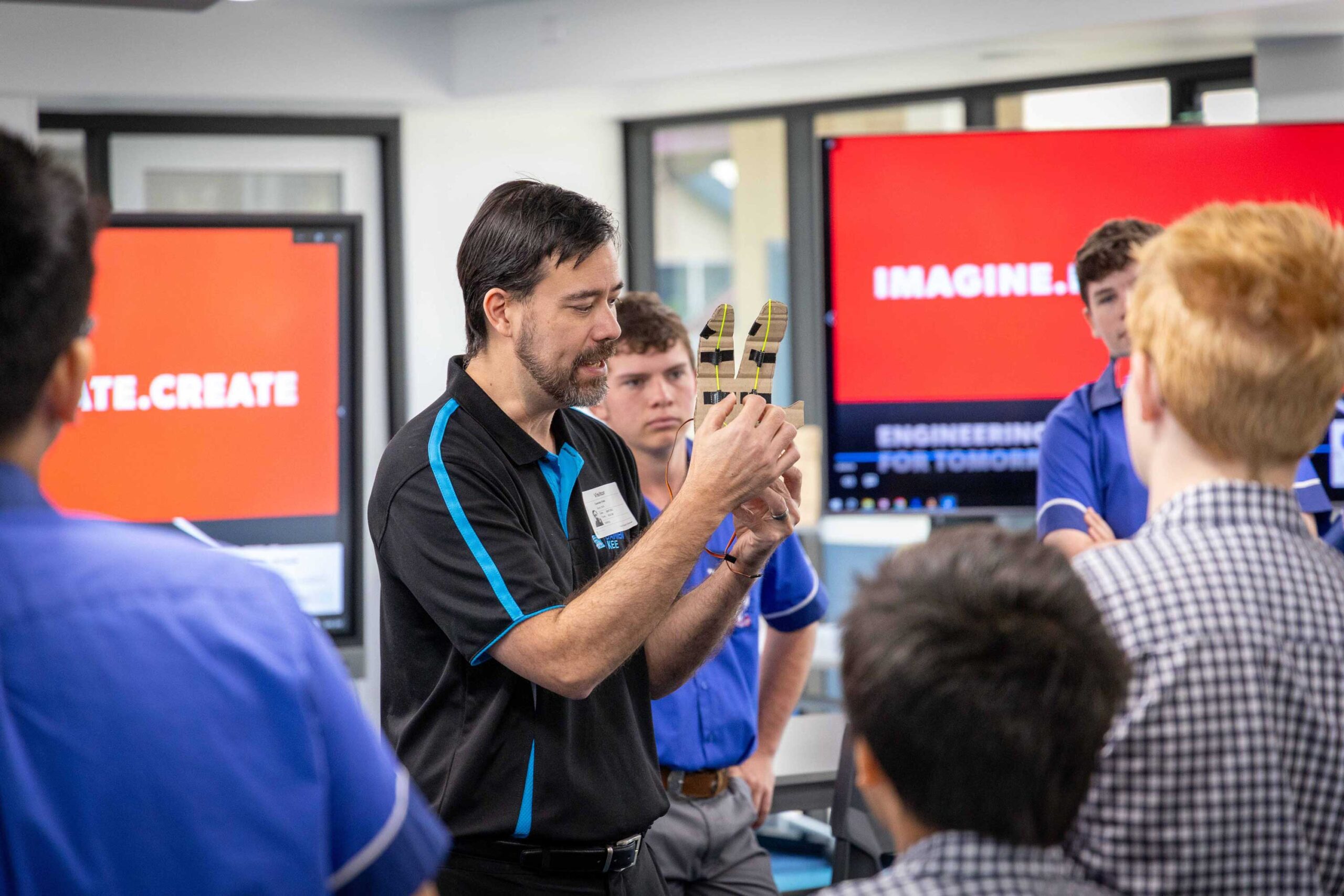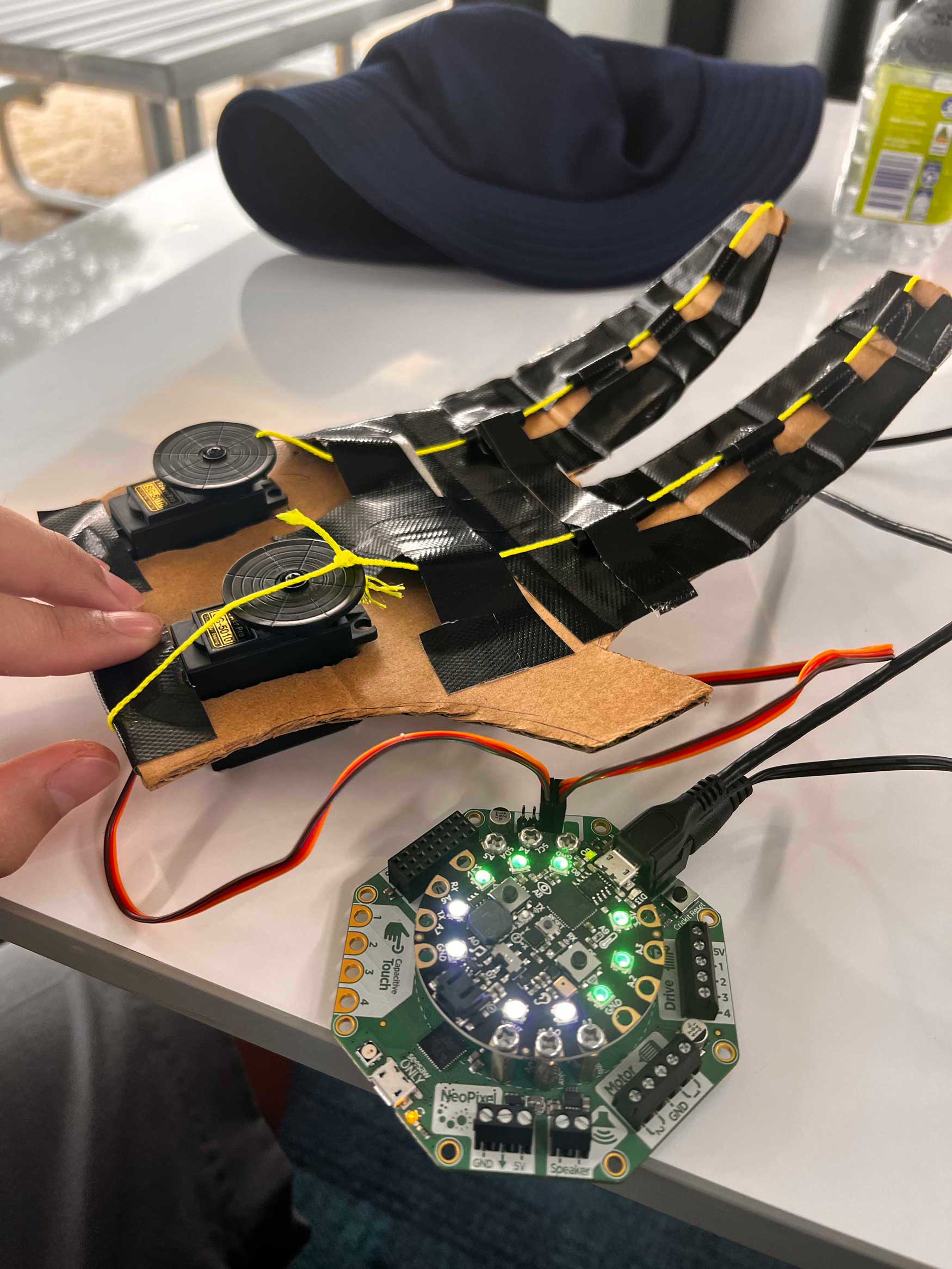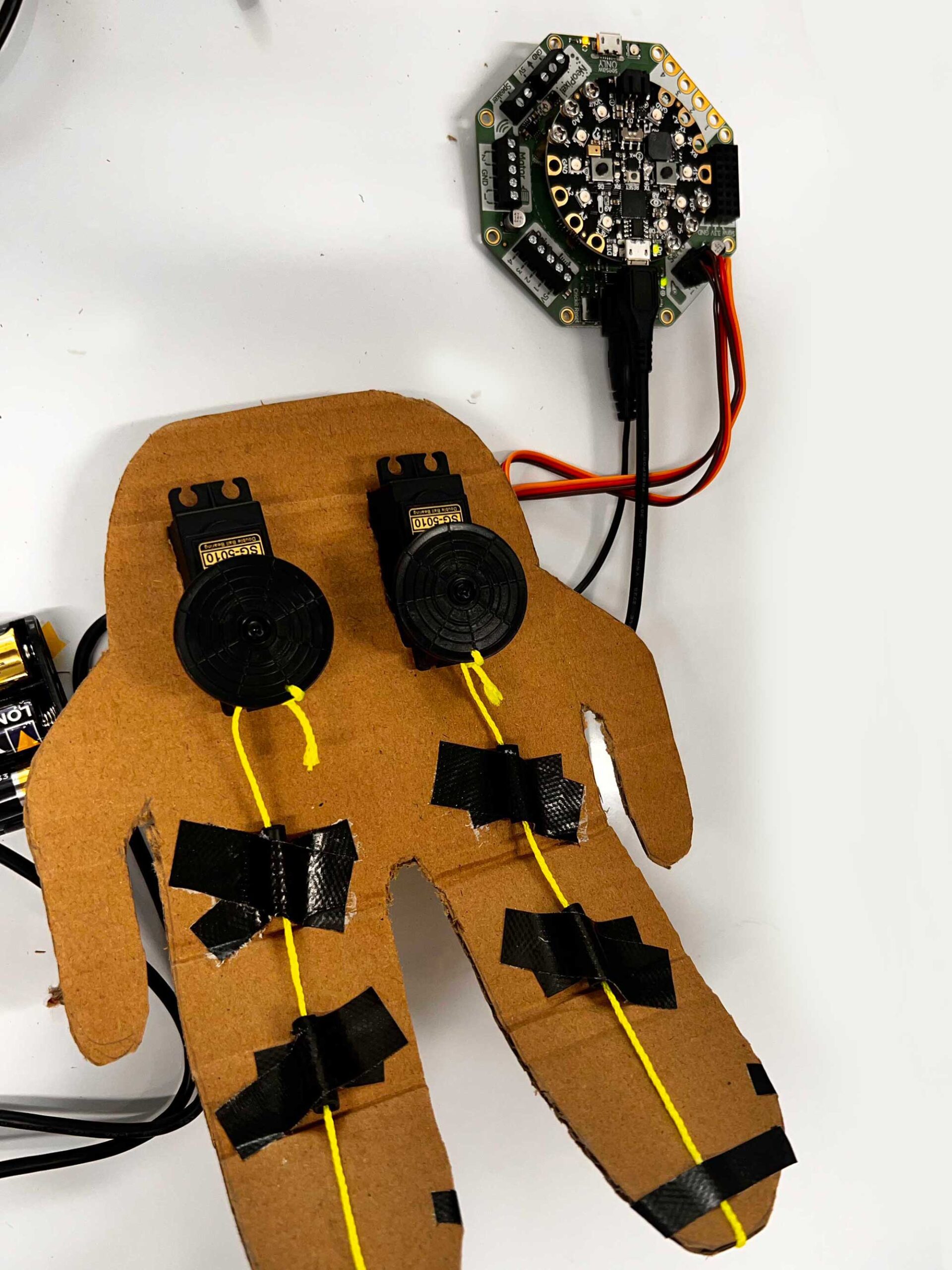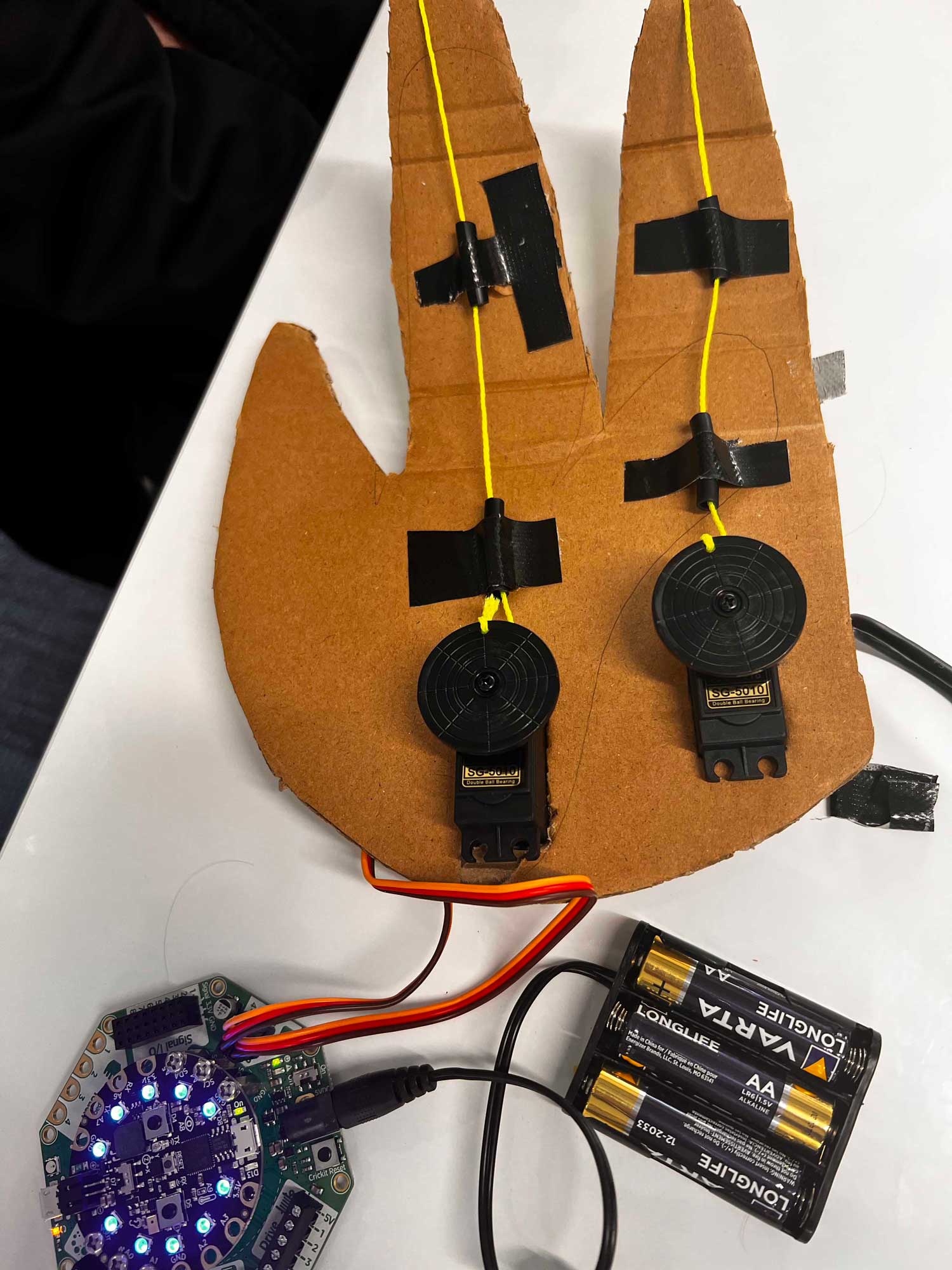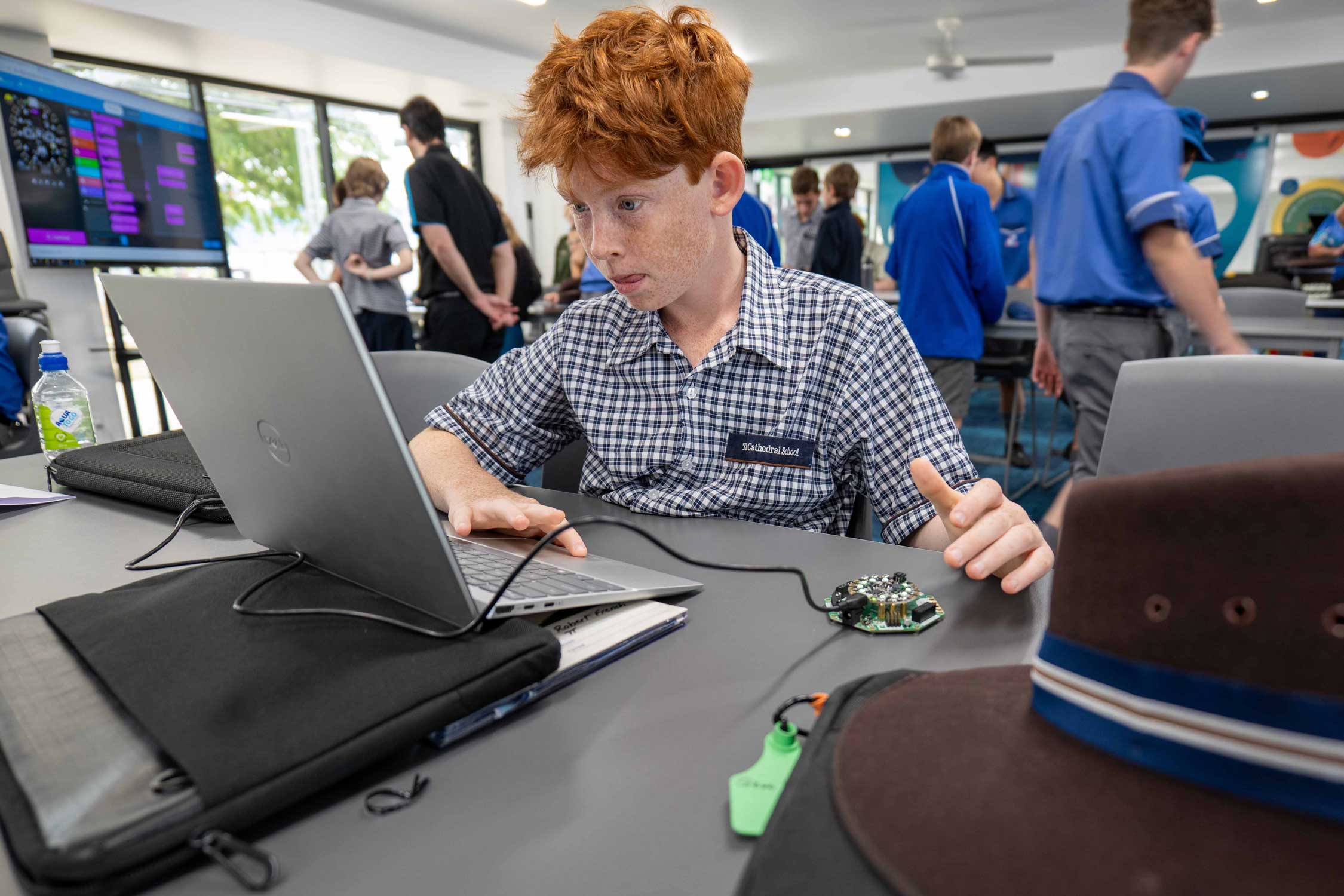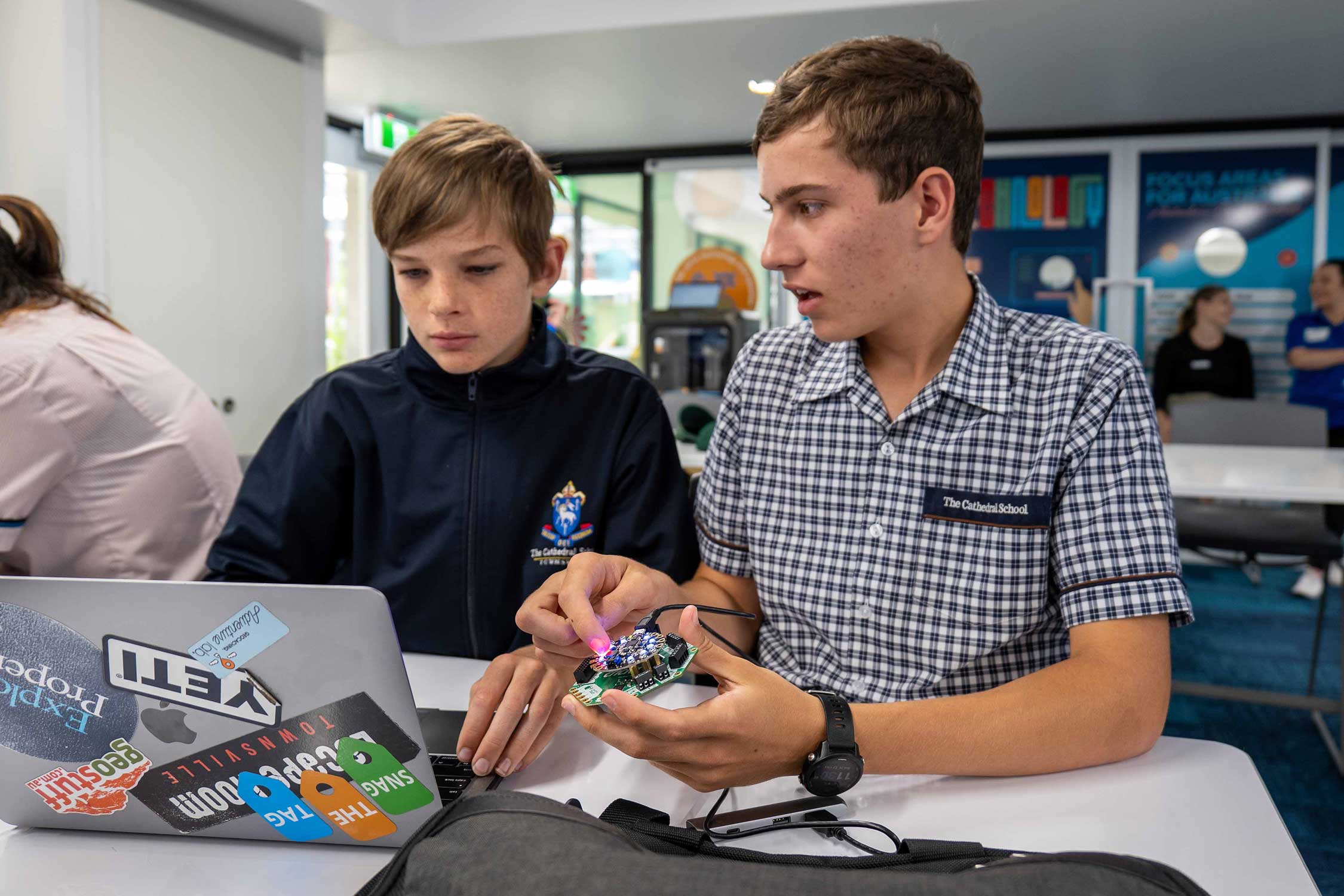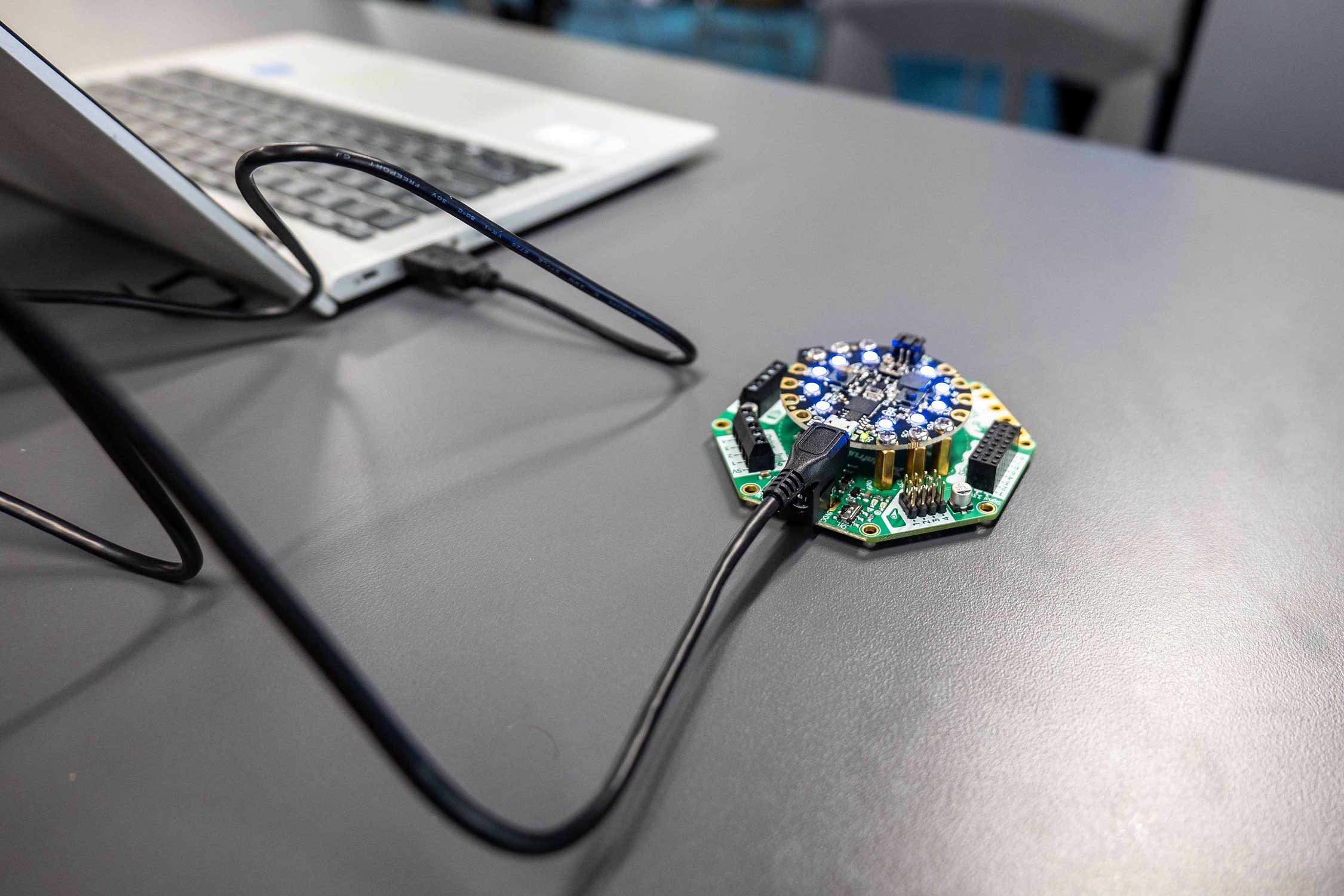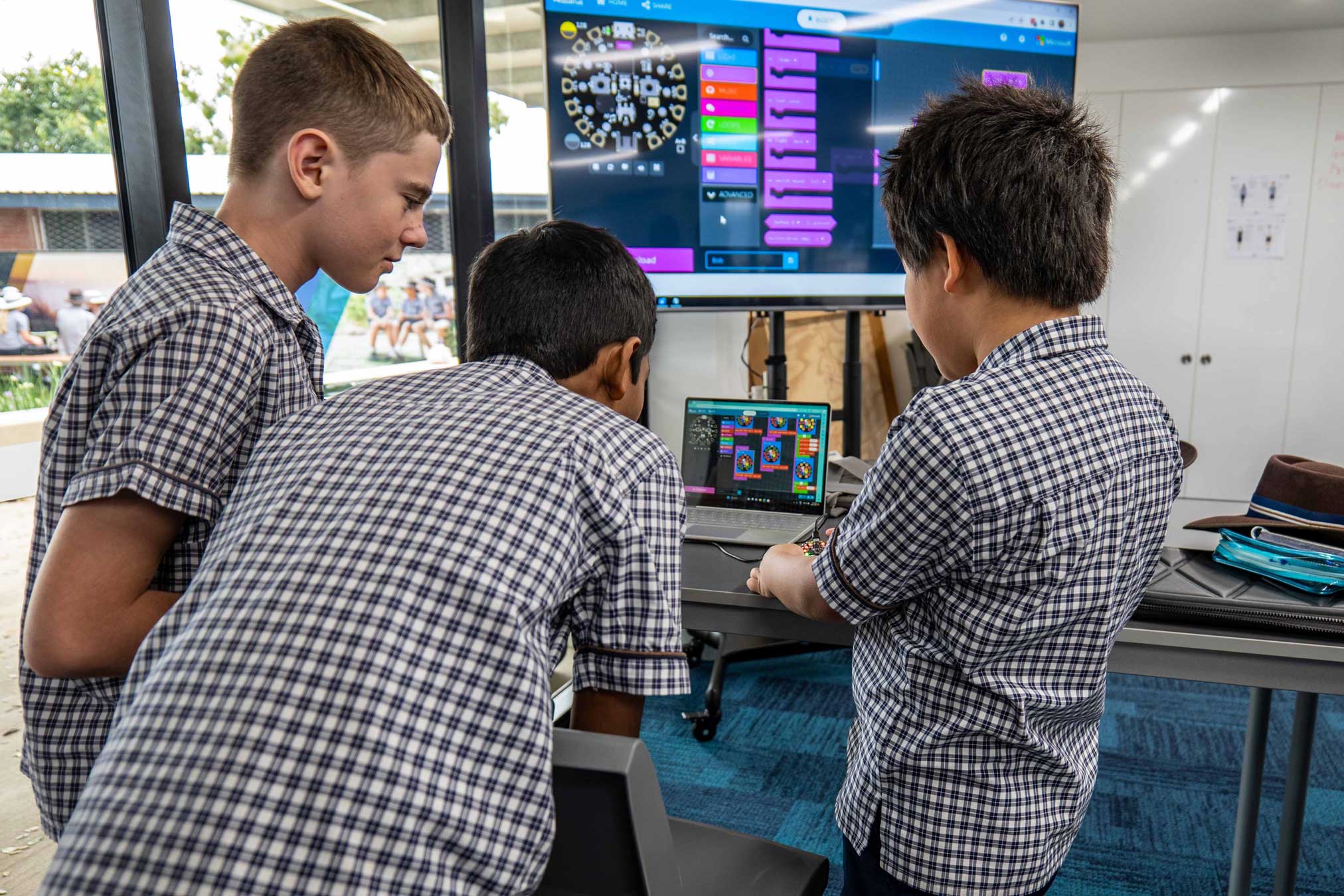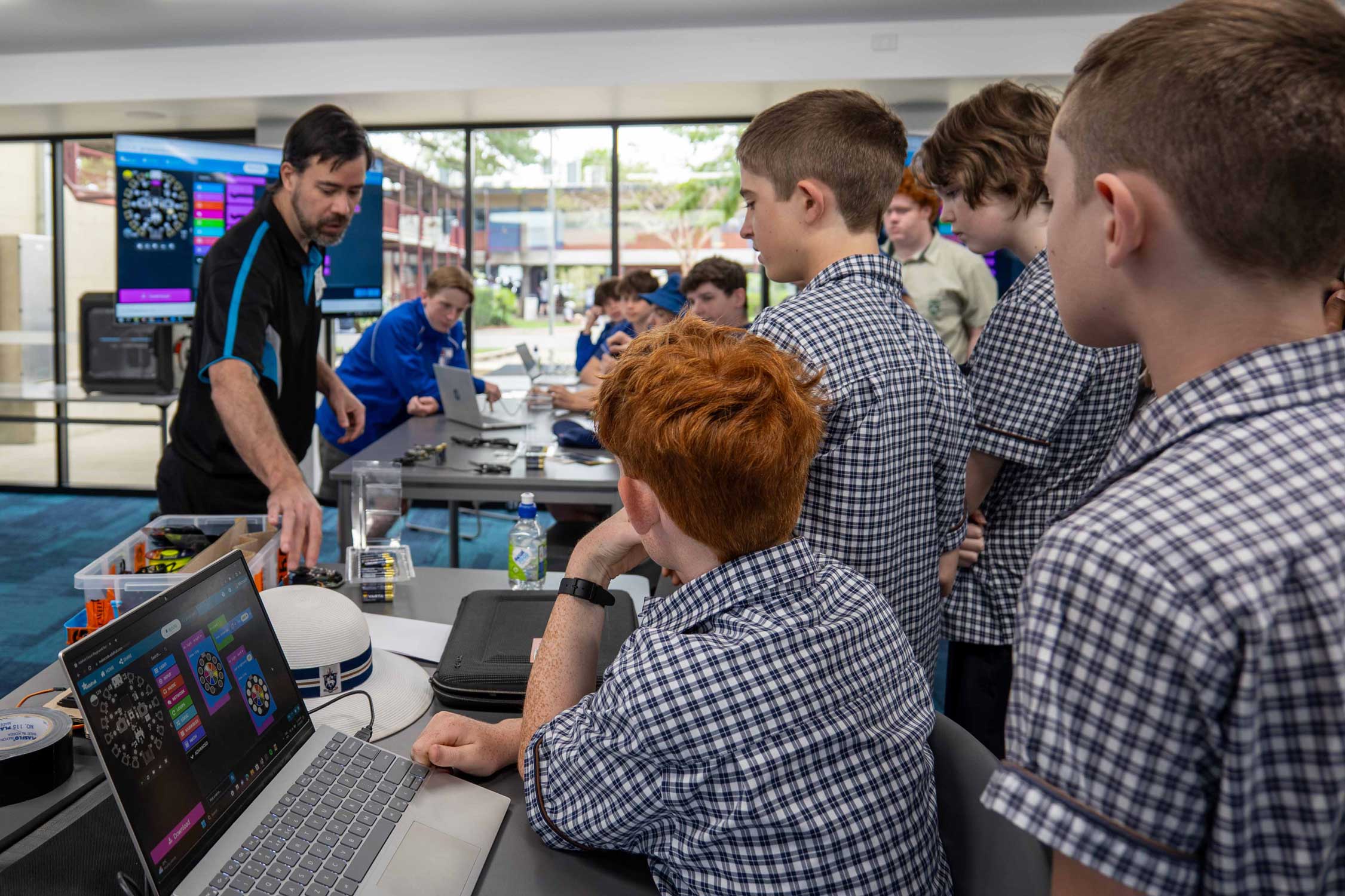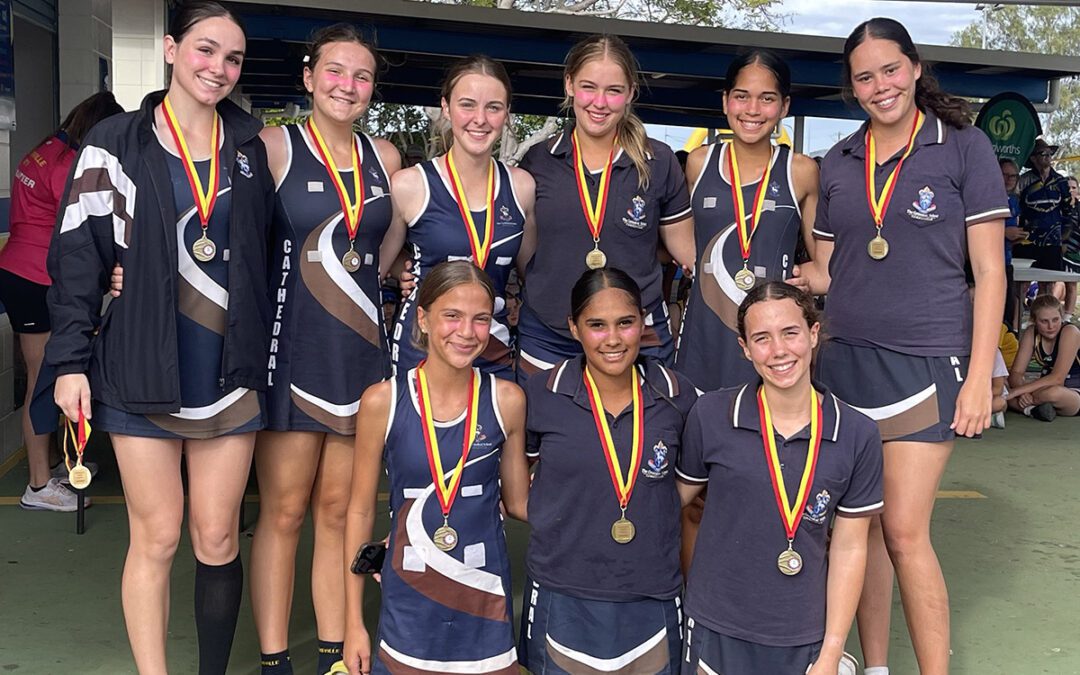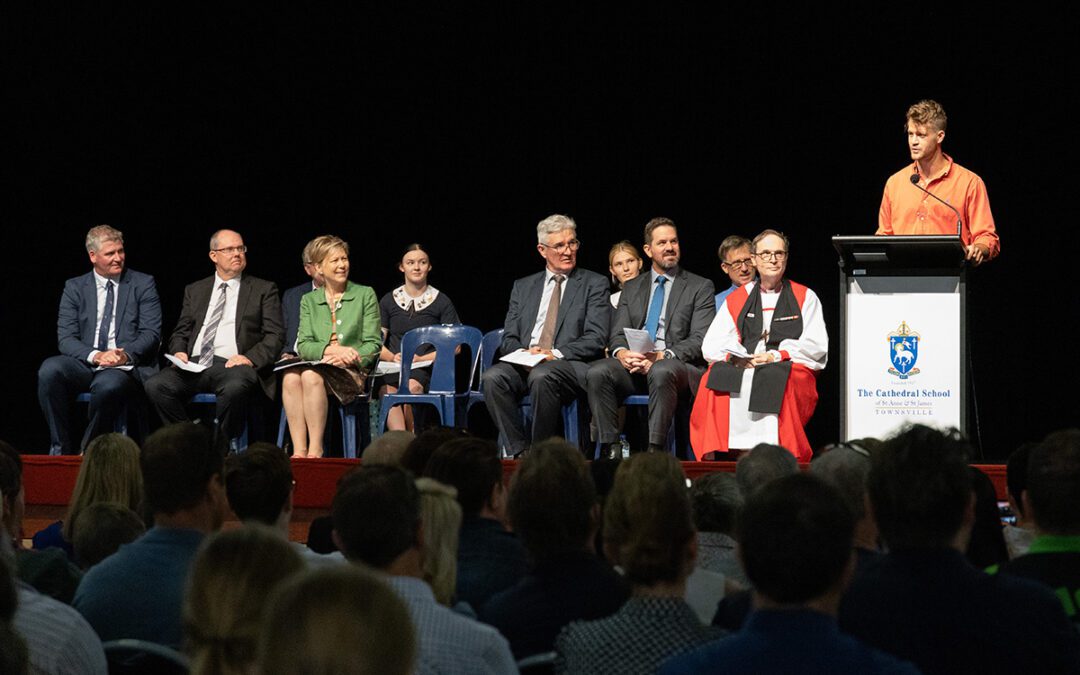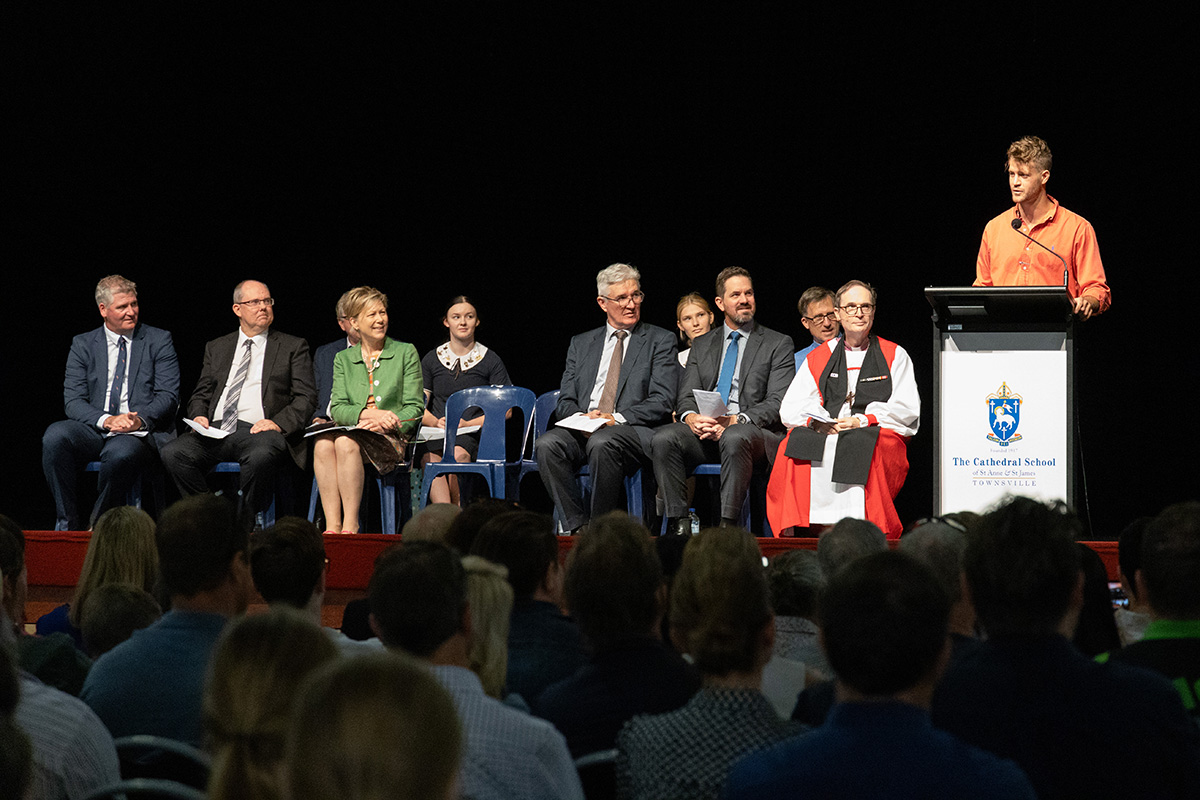
Book Week 2023
Book Week Character Parade
Cardboard, papier mâché, patience, plastic, paint, hair spray, make-up, glue guns, and unlimited imagination. These were some of the key ingredients for the amazing costumes created by children and families in this year’s Book Week Character Parade.

Children from Kindy through to Year 6 paraded their costumes in front of an excited crowd of students and parents, with teachers and staff joining in the fun with their own favourite children’s book character outfits. Encouraged by Gerald The Giraffe (aka Mr. Baills), there was plenty of dancing and strutting, with prizes awarded to the best dressed (by three mystery judges), from each year level.
Best Dressed Awards
Kindy
Alfie ‘Very Cranky Bear’ and Jia ‘Hungry Caterpillar’
Prep
Billie J (Prep S) – ‘Rabbit’ and Raener Y (Prep C) – ‘I Went Walking’
Year 1
Camdyn C (1T) – ‘Jack & The Bean Stalk’ and Ingrid T (1T) – ‘Cruella de Vil’
Year 2
Marlo H (2S) – ‘Ladybird’ and Thomas C (2C) – ‘Grug’
Year 3
Hayley P (3C) and Harrison M (3T)
Year 4
Elias S (4C), Helena E (4C), Chloe B (4S), Maria G (4T) – ‘Guac On Toast’
Year 5
Lillie S (5C) – ‘Te Fiti/Te Ka’ and John Scanlan (5C) ‘Greg from Diary of a Wimpy Kid’
Year 6
Preston C (6S) – ‘Gandalf’ and Elizabeth W (6S) – ‘Froggy’

